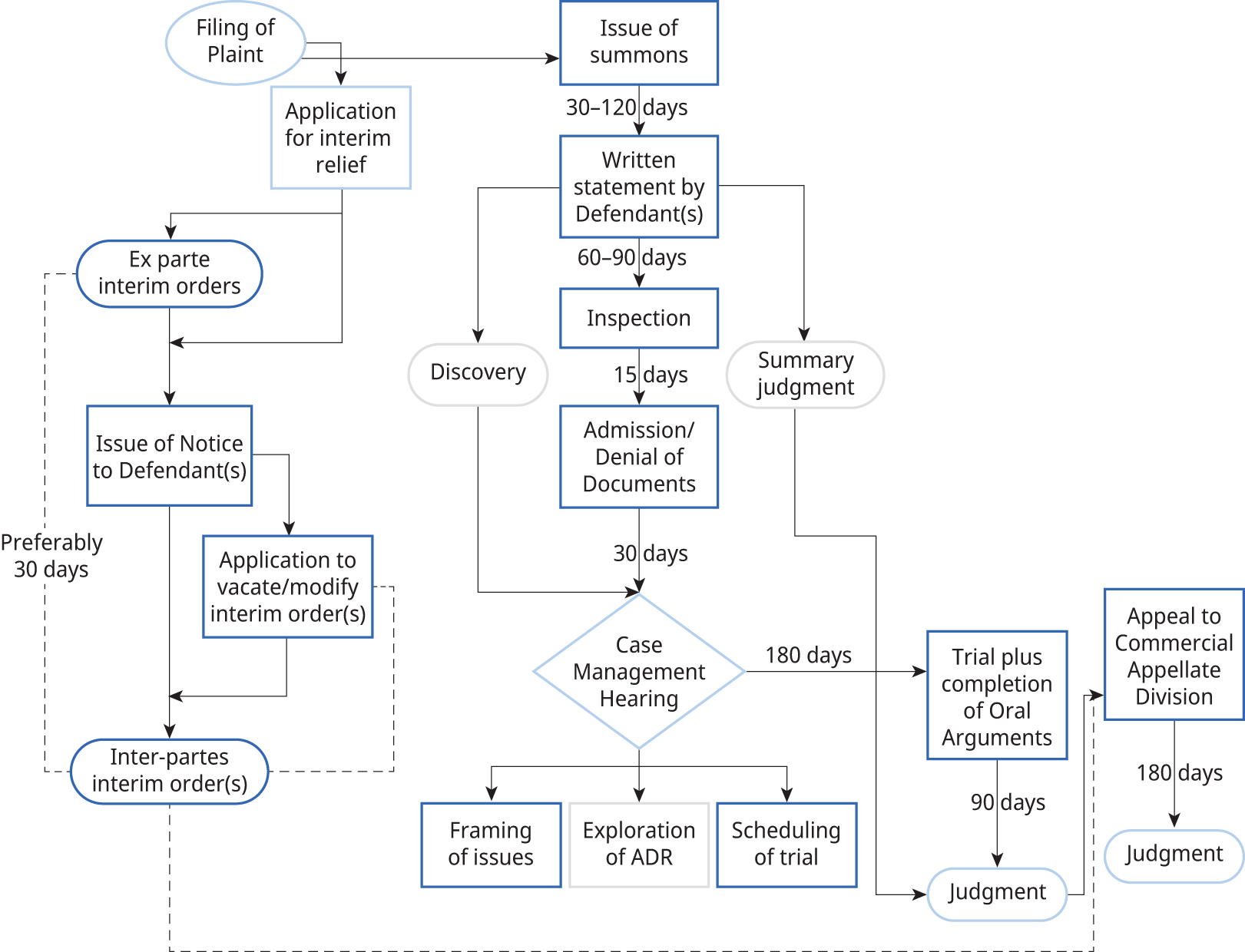6.6.3 Early case management
Once all pleadings are complete, the suit is listed before a designated commercial court single-judge bench in a case management hearing for framing issues. The court identifies, as precisely as possible, the issues that arise for determination; directs the filing of witness statements; and sets the schedule for trial. The Commercial Courts Act, 2015, prescribes short time limits for completing pleadings. Pending interim applications do not (and should not) delay the case management hearing for framing issues.
6.6.3.1 Pleadings and overall case schedule
The Commercial Courts Act, 2015, fixes mandatory timelines for filing all pleadings. The Supreme Court of India, in SCG Contracts India Pvt. Ltd v. KS Chamankar Infrastructure Pvt. Ltd,136 confirmed that the timelines fixed under the Act are mandatory. The Act also prescribes a schedule for the entire case (see Figure 6.4).

Note: ADR = alternative dispute resolution.
The rigidity of timelines under the Act has been of some concern in patent litigation, given the technical complexity involved. However, most practitioners and litigants agree that, without fixed timelines, litigation tends to become unnecessarily protracted. The strict scheduling ensures that pleadings are completed on time and that trials are expedited. The real bottleneck is the final arguments post-trial, which has systemic causes: chiefly, the enormous number of unfilled positions of judges. Recent trends in filling these vacancies, coupled with specialized training in IP-related matters of judges rostered to IP cases, ought to address the bottleneck problem.
6.6.3.2 Case management hearing
Case management is mandatory under the Commercial Courts Act, 2015. The first case management hearing must be mandatorily held not later than four weeks from the date of filing of an affidavit of admission or denial of documents by the parties. It is intended for the court to engage in the early identification of disputed issues of fact and law, the establishment of a procedural calendar for the entire case (including trial and final hearing), and the exploration of the possibility of dispute resolution other than by trial.